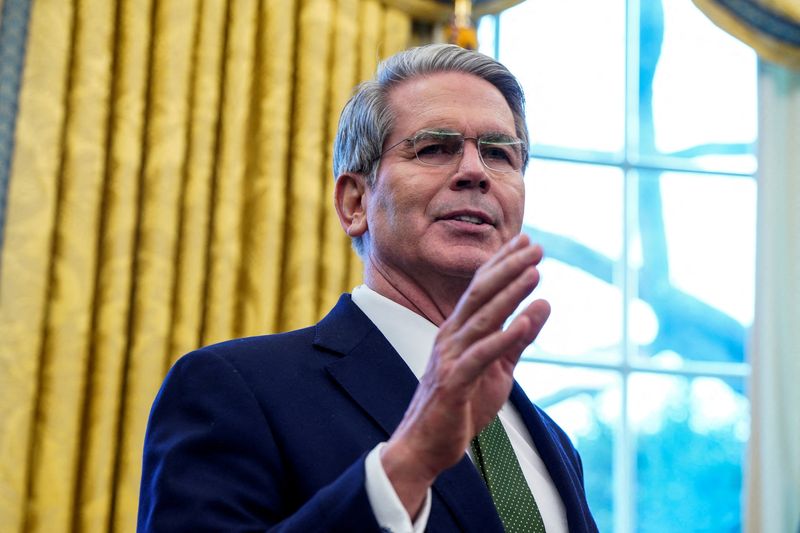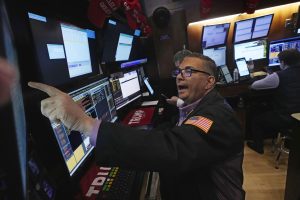
By Davide Barbuscia and Saeed Azhar
NEW YORK (Reuters) – U.S. Treasury Secretary Scott Bessent’s pledge to contain yields on 10-year Treasury notes met some skepticism in the bond market on Thursday, as inflationary pressures and expectations of a widening federal deficit threaten to outweigh efforts to curb borrowing costs.
Bessent said in an interview with Fox Business on Wednesday that while President Donald Trump wants lower interest rates, he will not ask the Federal Reserve to cut rates, and that he and the president were intently focused on the 10-year Treasury yield. He added that lower energy prices will help contain price pressures, while spending cuts will improve the fiscal outlook.
Benchmark 10-year Treasury yields have a direct impact on mortgage and credit card rates as well as consumer loans, while the Fed’s short-term interest rate impacts money markets and, only indirectly, borrowing costs.
But bond investors and analysts remained somewhat unconvinced by Bessent’s comments, as Trump’s trade and fiscal policies are expected to push long-term Treasury yields higher, despite lower energy prices and government spending cuts.
“The bigger issue in the inflation complex is service-sector inflation, and the stickiness of inflation generally in the past number of months,” said Padhraic Garvey, regional head of research for the Americas at ING. “The tariff agenda can only place upward pressure on prices, and, in fact, (is) likely to prove more impactful than the energy price containment plan,” he added.
The yield on 10-year Treasury notes, last at 4.43%, hit a seven-week low on Wednesday due to factors including signs of a slowing economy, as well as some safe-haven buying due to geopolitical uncertainty and guidance from the Treasury Department this week that assuaged market concerns about imminent increases in long-term government debt issuance.
However, yields inched higher on Thursday. Short-term yields were on an upward trajectory earlier this week as Trump’s threat of punitive tariffs on key U.S. trade partners fueled concerns about higher inflation, while long-term yields drifted lower in a safe-haven bid.
Even if they stabilized after the president delayed the tariffs on Mexico and Canada, trade war risks loom over markets.
An annual survey by JPMorgan Chase showed on Wednesday that traders across the globe project that tariffs and inflation will have the biggest impact on global markets in 2025.
“Yes, it is a good idea to try to keep 10-year Treasury note yields low and perhaps get them lower. But the question is who is in control of 10-year yields? The answer is quite simple: the market,” said Mark Malek, chief investment officer at Siebert.



